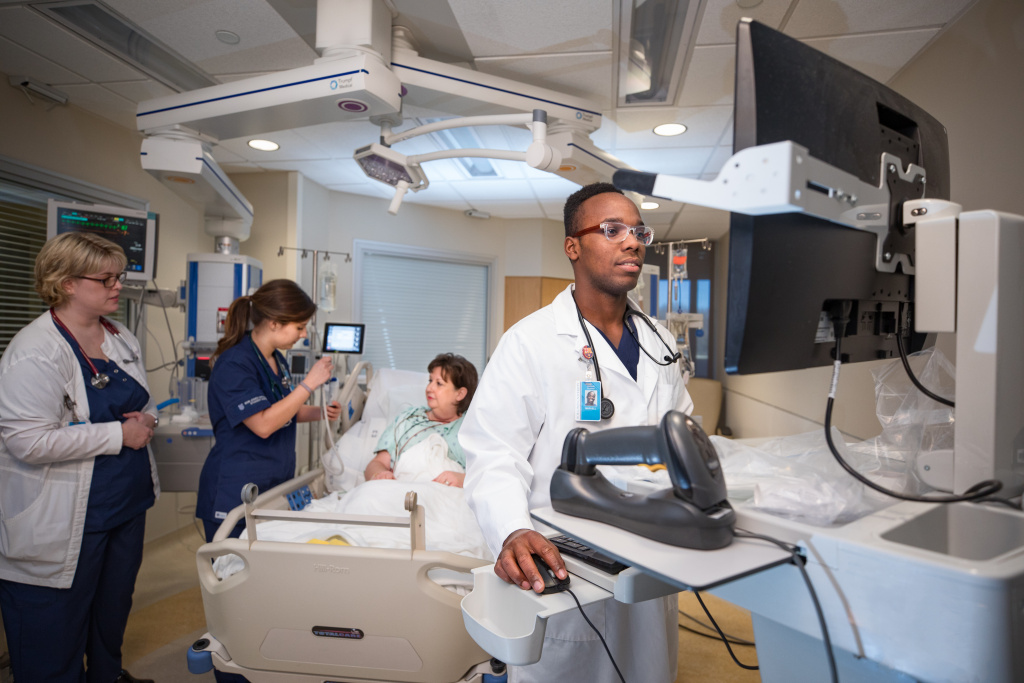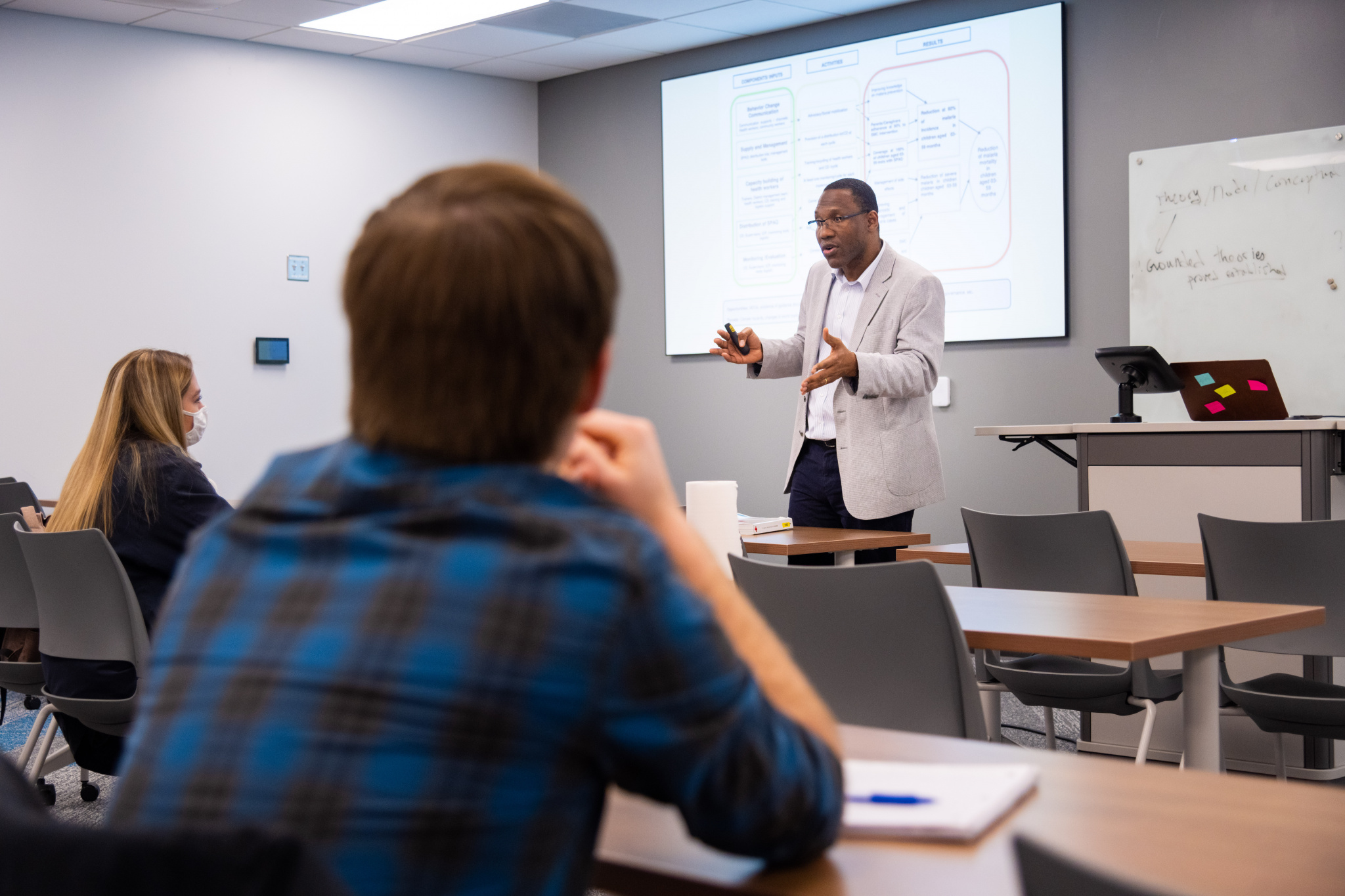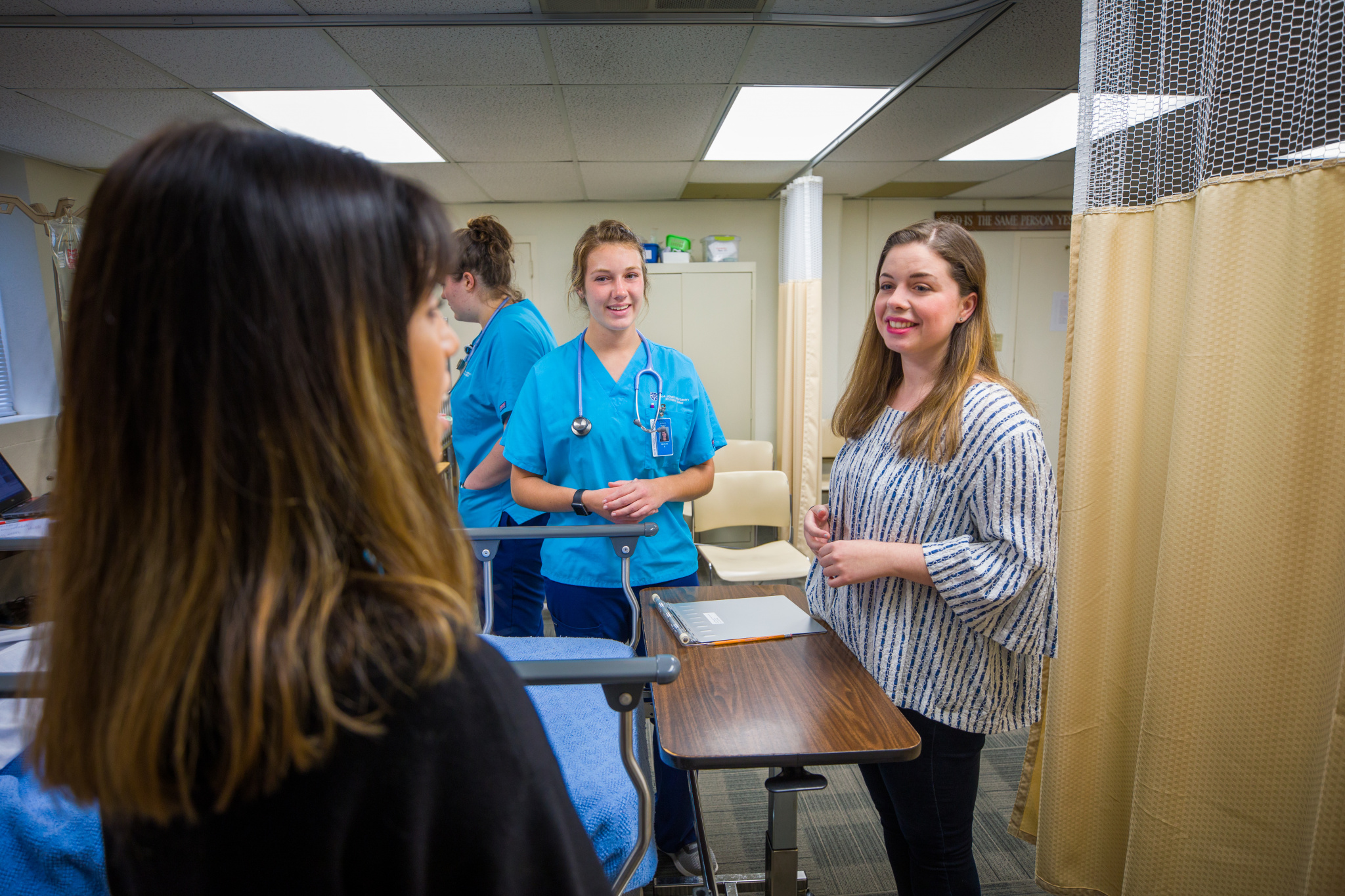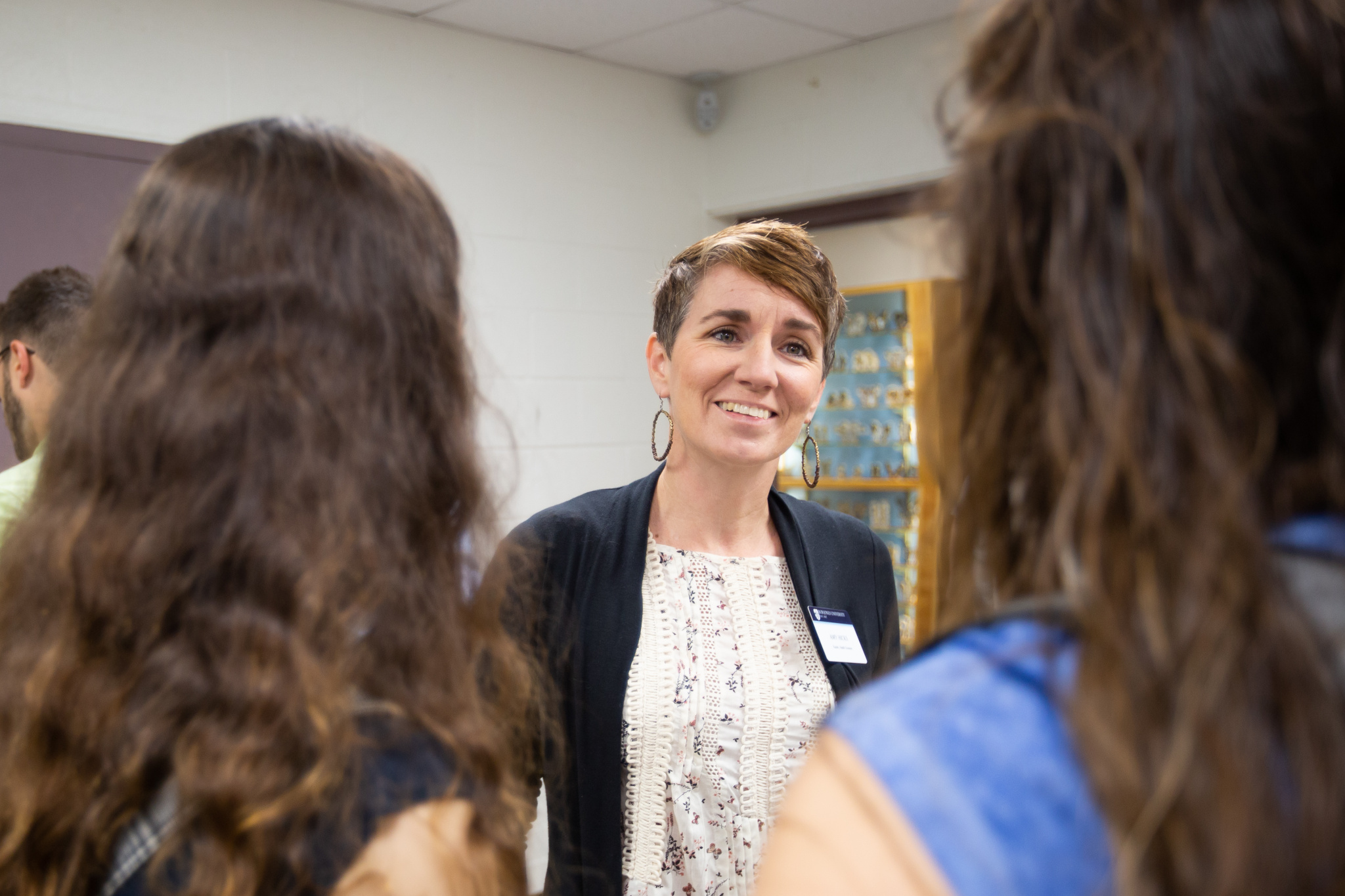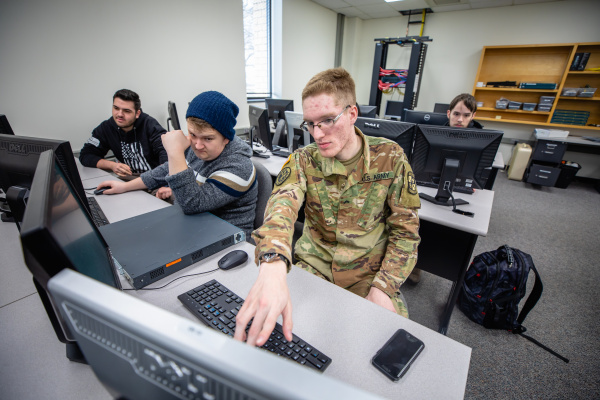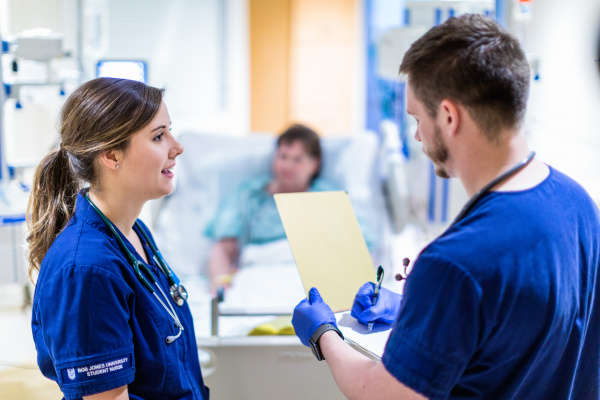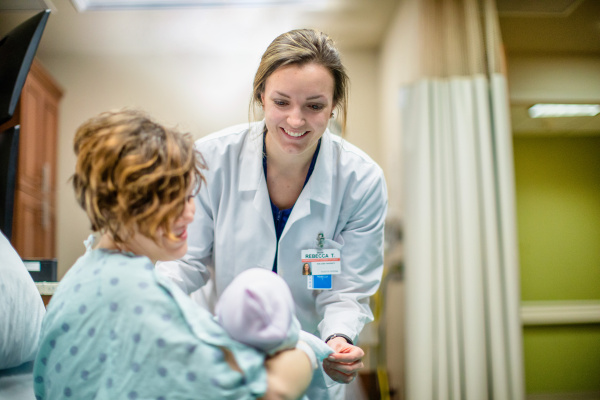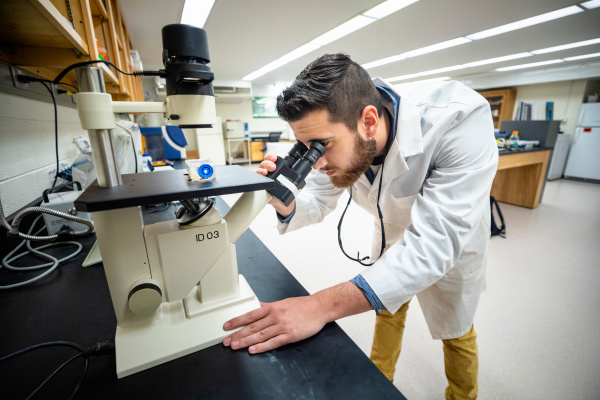In the moment of a medical emergency, we all want the best care possible. Our experience depends on the professionals that attend us. They are all a part of a larger equation — the people at the front desk, doctors, nurses and pharmacists are all an equally important part of what makes a hospital a whole.
BJU’s health sciences program prepares the next generation of individuals with a burden to serve in the health care industry. The hands-on experience and customizable curriculum allow you to enter the medical world with a deep understanding of your field.
Each year, this program has a diverse group of students who are passionate about helping people live their best lives. Each student has a different goal of what they want to accomplish once they graduate, but they are all taught one common principle: how to help their community.
As Dr. Amy Hicks, chair of the Division of Health Sciences, said, “(This program) offers the ability to go into a community to understand the health needs of the entire community and then to do something about it. Instead of reacting to sickness in one patient, you are trying to promote wellness within a home.”
What If I’m Not Sure?
The health sciences program was specifically designed for two types of students. The first type of student is the kind that knows exactly what they want to do when they graduate. The classes and electives they choose will all be carefully curated to prepare them for the future job they have in mind.
The second type of student is the one that is unsure of which specific field is right for them. “For those students, we have purposefully designed this major to allow them to be able to come in and out of various career pathways,” Hicks said.
The first classes you take will include science classes required for several programs. If you change your mind about which career to pursue, this program makes it easier for you to adjust your classes to another program.
See Also: Undecided Major? You’re Not Alone
What Careers Can I Pursue With This Degree?
Students who want to assess and diagnose patients enroll in the premed program, while those interested in taking care of sick patients enroll in the nursing program. But what about the students who want to be in health care without being a nurse or a doctor?
“A lot of students want to be involved in the medical field or health care in some way, and even though they don’t feel called to be a doctor or nurse, they still want to work in that field,” Hicks said. “There are many different kinds of jobs available to students in health care, and health sciences is a great path toward a lot of those jobs.”
Health science is a broad program, so the types of careers you can pursue depend on the classes you take. You can pick one of the five concentrations that the health science program offers: health care administration, nutrition, pre-pharmacy, pre-physician assistant and the general program.
Your workplace doesn’t have to necessarily be in a hospital setting. You can also work for your local health department, laboratories and pharmacies. You could become a community health worker, patient advocate, medical assistant or health educator.
Can I Add a Minor to This Program?
A minor is one way to personalize your education to fit your specific needs. You have many options when it comes to picking a minor, but Hicks has some suggestions as well.
One of the minors that Hicks recommends is a minor in any language. “That would allow students to be able to move in between different cultures and connect with different kinds of people,” Hicks said.
Another minor Hicks suggested is biblical counseling. “There is a lot of counseling involved in health care, particularly helping people with behavior change, because most health problems do have some component of behavior involved. So that is another great one,” Hicks said.
What Faculty Will I Meet?
The health sciences program has dedicated faculty with numerous years of experience in their field. The factor that makes the faculty stand out is their compassion and desire to help others. Aside from being full-time teachers as well as health care professionals, many faculty members have participated in several charitable projects.
As his student, you will have the opportunity to hear the story of how Dr. Bernard Kadio was inspired to start the Hope Christian Health Center. He teaches the upper-level health science courses, so you will meet him during your last two years. His testimony has been an inspiration to students for many years.
Whether you meet her inside the classroom or schedule a meeting in her office, you will meet Hicks. She has years of experience in cancer research and has co-founded a biomedical research networking association. Each year, Hicks dedicates a part of her summer to leading a mission trip to Africa. They have gone to the Ivory Coast, Ghana, Kenya and most recently Uganda.
Each health science student is required to take a nutrition class which means you will meet Melanie Schell. Aside from teaching nutrition courses, Schell dedicates her time to promoting healthy living through LiveWell Greenville. She also teaches people how to eat healthy by leading workshops and events in universities as a part of the Regional Southeast Nutrition Team.
Learn more about the health sciences faculty
What Type of Internship Will I Have?
During your final year, you will meet with your internship advisor to discuss which type of opportunity would be the most beneficial for you. In the past, students have interned with the Greenville Homeless Alliance, LiveWell Greenville and Taylors Free Medical Clinic.
“It should be specifically looking at what they want to do when they graduate. Their internship is more than just an observation. We want them to actually get to do a project they’re interested in,” Hicks said.
What Is the Focus of the Program?
Through your experiences in this program, you will become a problem solver and critical thinker with the goal of helping people live healthy lives. “Students learn to be critical thinkers in this program. There are no clear-cut answers to everything in health care,” Hicks said. “They have to learn to be problem solvers, think through a problem and analyze many different factors to then come up with ways to meet the needs of people.”
A big emphasis of the program is health in communities. You will research different communities and analyze their health needs. “They’re going to learn things like how socioeconomic factors contribute to health problems, how policies contribute to health, how people’s behaviors contribute to their health problems,” Hicks said.
While the faculty focuses on preparing you for a future in health care, there is another principle that they want you to remember: the motto of the program of health sciences.
“Our motto is taken from Micah 6:8,” Hicks said. “Micah 6:8 says, ‘He has shown you, O mortal, what is good. And what does the Lord require of you? To act justly and to love mercy and to walk humbly with your God.’”
The motto embodies what it is to be a Christian in the medical field. “Our motto is do justice, love mercy and walk humbly. Those are the things that we want students to take away. People who pursue justice, act with a merciful spirit and are humble. They’re not conceited, arrogant or proud,” Hicks said.
“Students who succeed in this program really need to be able to think. I’d say that we are looking for students who want to be problem solvers, who want to make a difference in the world and who are willing to go the extra mile to try to learn.”
For more information about the health sciences program or to apply online, visit BJU’s health sciences program page.


